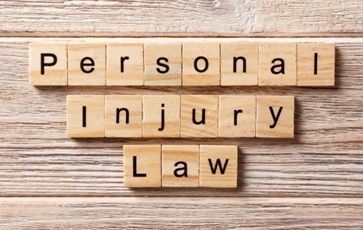A Guide to Hospital-Acquired Infection and Claim Filing
Unfortunately, some individuals leave the hospital worse than when they were admitted. And one cause of health deterioration is negligence, whereby the facility or medical practitioners fail to provide the necessary standard of care.
While there are numerous types of medical malpractice, one of the most serious is when a patient contracts an infection while under care. Read on for everything to know about hospital-acquired infections.
What Is a Hospital-Acquired Infection?
A hospital-acquired infection (HAI) is an infection that occurs while you are in the hospital receiving treatment for something else. The most common types of HAIs are:
- gastroenteritis
- meningitis
- pneumonia
- surgical site infections
- urinary tract infections (UTIs)
These infections may happen anywhere, from your blood to your urinary tract to your surgical wound.
What Causes Hospital-Acquired Infections?
Numerous situations may lead to the development of an HAI. Here are the common culprits.
Hospital Overcrowding
If the hospital is frequently at or near full capacity, the issue may increase the risk of infection. That's because there are more people in close quarters, which makes it easier for germs to spread.
Improperly Sanitized Medical Devices
If medical devices aren't properly sanitized between patients, infections may pass from one person to the next. Some highly overlooked devices that require proper cleaning before use on different patients include the catheter, ventilator, and blood pressure cuff.
Poor Hand Washing
One of the most common ways hospital-acquired infections are spread is through the transfer of germs from one person's hands to another person's body. For example, if the doctor or nurse fails to wash their hands or wear gloves before examining a patient, they may unknowingly transfer bacteria.
Weak Immunity
Individuals with a weak immune system have a greater chance of developing an infection, as their bodies cannot fight off germs as effectively.
Dirty Beds and Floors
If the hospital beds and floors are dirty, germs and bacteria can linger and cause infections.
How Do Hospital-Acquired Infections Affect Your Health?
The effects of an HAI can be severe and, in some cases, even deadly. The infection can quickly spread through your body, leading to organ failure or sepsis.
Sepsis is a life-threatening condition that occurs when an infection spreads throughout the body and triggers a severe immune response. If not treated immediately, sepsis can lead to tissue damage, organ failure, and death.
Things get worse if you are yet to recover from the primary illness that caused you to be hospitalized in the first place. In such a scenario, your body is already weak and vulnerable, which makes it even harder for you to fight off an infection.
Do You Have a Viable Claim After a Hospital-Acquired Infection?
Suppose you or your loved one has contracted an infection while receiving treatment in the hospital. In that case, you may be eligible to file a claim and seek compensation for economic and non-economic damages.
To have a viable claim, you must prove that the infection was caused by the negligence of the hospital or healthcare staff. For example, if you can verify the infection was caused by dirty medical equipment or poor hand washing, you would have a strong case.
You also need to prove that the infection resulted in physical, emotional, or financial harm. For example, you would have a strong case if the infection led to sepsis and organ failure, resulting in costly medical bills and a lengthy recovery period.
If you're unsure whether you have a viable claim, the best thing to do is to speak with a medical malpractice lawyer specializing in hospital-acquired infection cases. The attorney will assess your case and guide you so you won't make mistakes that could harm your chances of a successful claim.
You can trust us at the Law Offices of Janice Maloney to give you the legal help and support you need if you've been affected by an HAI. We have decades of experience handling medical malpractice cases and will fight to get you the compensation and justice you deserve. Contact us for a consultation.




